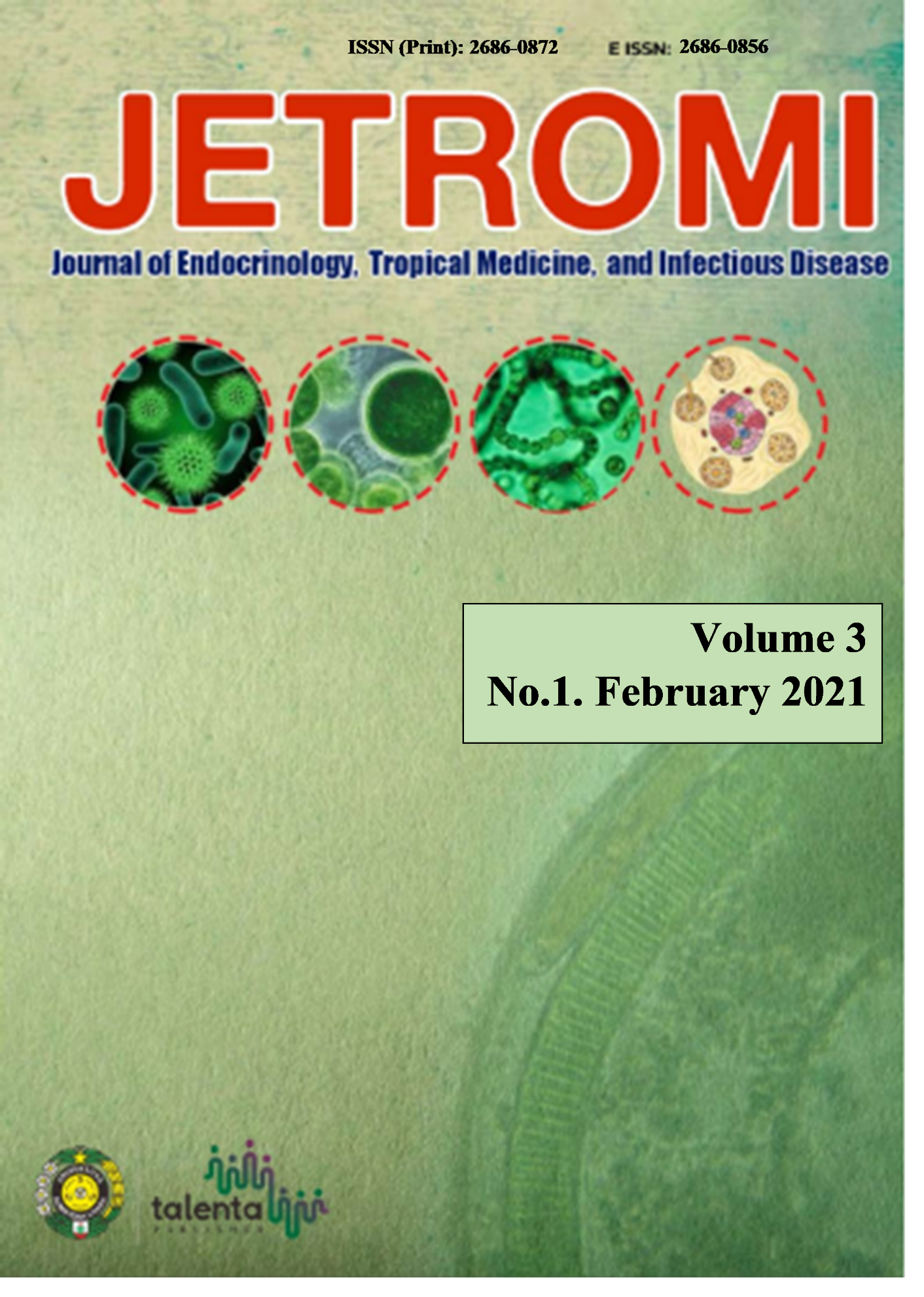Pituitary Macroadenoma Manifesting As Acromegaly: A Case Report
DOI:
https://doi.org/10.32734/jetromi.v3i1.5482Keywords:
Keyword: Acromegaly, macroadenoma pituitaryAbstract
Background: Acromegaly is an uncommon clinical disorder driven by high serum levels of growth hormone (GH) and insulin-like growth factor 1 (IGF-1). Over 99% of patients with acromegaly harbor a GH emitting pituitary adenoma. Pituitary tumors represent about 15% of essential intracranial neoplasms. Case presentation: A 38 years old woman, was referred to the H. Adam Malik central public hospital on December 15th, 2020, with chief complaints of enlarged fingers and toes. The patient complained that the patient's fingers and toes were getting bigger in the past 2 years. The brain MRI was performed showed intrasella spherical intensity lesions measuring ± 2.3x1.5x2 cm with the impression of macroadenoma. The patient later diagnosed with acromegaly due to pituitary macroadenoma. Therefore the patient was treated with administration of sandostatin injection, novorapid 6-6-6 IU SC, then 0-0-12 IU SC, 3x1 salt capsules. The patient is also consulted to the neurosurgery department for surgical management plans and a consulted to the Ophthalmology Department. Conclusion: We report an instance of acromegaly suspected because of pituitary macroadenoma in a patient with unmistakable clinical highlights, with comprehensive management.
Downloads
Downloads
Published
Issue
Section
License
Copyright (c) 2021 Journal of Endocrinology, Tropical Medicine, and Infectiouse Disease (JETROMI)

This work is licensed under a Creative Commons Attribution-NonCommercial-ShareAlike 4.0 International License.
The Authors submitting a manuscript do so on the understanding that if accepted for publication, copyright of the article shall be assigned to Journal of Endocrinology, Tropical Medicine and Infectious Diseases (JETROMI).
Copyright encompasses exclusive rights to reproduce and deliver the article in all form and media. The reproduction of any part of this journal, its storage in databases and its transmission by any form or media, will be allowed only with a written permission from Journal of Endocrinology, Tropical Medicine and Infectious Diseases (JETROMI).








